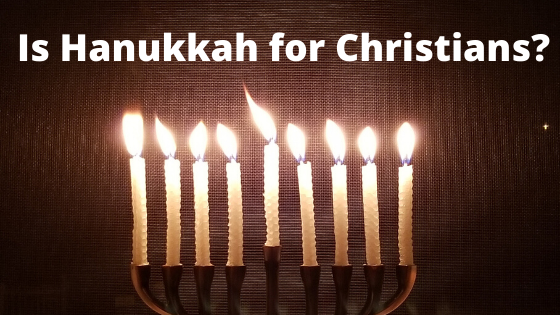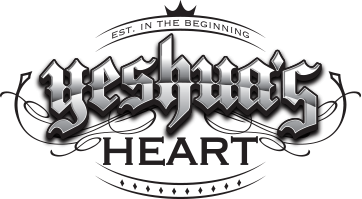
Is Hanukkah for Christians?
Celebrating Hanukkah, especially being new to celebrating God’s feasts, can seem strange. It’s one thing to celebrate the Feasts of the Lord (YHVH), the “moedim” which are God’s appointed times. It’s another thing to celebrate Hanukkah, a decidedly Jewish holiday, and not an appointed festival of God.
1 John 2:6 says “whoever says he abides in him ought to walk in the same way in which he walked.”
Did Jesus himself celebrate Hanukkah? And if so, is this holiday appropriate for us to enjoy too? Being himself a Jew (member of the tribe of Judah) Jesus, (who’s Hebrew name is Yeshua) went up to the temple during the Hanukkah celebration.
In John 10:22 it is revealed that it is during the Feast of Dedication. “At that time the Feast of Dedication took place at Jerusalem. It was winter and Jesus was walking in the temple, in the colonnade of Solomon.“
Prior to this verse revealing the time and location, Jesus declares he is the “light of the world”.
John 8:12 “Yeshua spoke to them again, saying, “I am the light of the world. He that follows me shall not walk in darkness, but shall have the light of life.”
John 9:5 “As long as I am in the world, I am the light of the world.”
Why is this significant? It’s all in the meaning of the word Hanukkah. For many modern Jews it has come to mean a “festival of lights”. But it’s deeper meaning is “dedication”.
During the year 168 BC the temple in Jerusalem was desecrated by Antiochus Epiphanes. He renamed the temple after Zeus, sacrificed a pig on the alter, then boiled the pig and poured the boiled water all over the Torah scrolls.
He outlawed faith in God, banned the observance of Shabbat and feast days (moedim), and forced conversion or death. This is a pattern that will be used again and again throughout history.
The holiday commemorates a revolt by the Maccabee family who planned a resistance against Antiochus and won against all odds. It took 8 days to cleans and rededicate the temple to God (YHVH). During that time it is said that there was not enough oil to light all the menorah’s but by God’s miracle a small amount was able to last and light them all. However, there is no actual documentation of such a thing happening.
An actual historical account of these events is in the non-canonical book of 1 and 2 Maccabees. The more accurate reason for the 8 day celebration is that while the faithful rebels where in the middle of a war with Greece, they could not celebrate Sukkot. So they had a “make up” Sukkot celebration during the re-dedication (Sukkot is 8 days long).
Celebrating Hanukkah and lighting its lights became an act of defiance even in later centuries — as the famous photo of a Hanukkah menorah in a window facing a swastika attests.
But what’s most fascinating about Hanukkah is not just its historical roots, but its linguistic meaning. In the Hebrew dictionary, it means “the dedication of an object for its task, the opening ceremony or the first use of something in a new home.”
“Hanukkah,” more simply means “dedication.” Or more specifically “the re-dedication of the Temple” It’s important to know when doing a word study that every noun in Hebrew has four forms — singular, plural, construct singular and construct plural.
The word Hanukkah is all over the Psalms, but it usually appears in the construct form: Chanukat, or “the dedication of.” In English it is often translated as “dedication.”
In Hebrew, Psalms 30:1 reads mizmor shir chanukat habayit l’David. According to the 1985 Jewish Publication Society translation, it reads: “A Psalm of David. A song for the dedication of the House.”
Hebrew is a language made of triliteral roots; Hanukkah is constructed from the three-letter root chet, nun, chaf, which also happens to be the root of words having to do with teaching and education.
But there’s more; Hebrew theoretically assigns up to seven different structures for any given verb, each of which has a different meaning.
All of them share a deep kernel of meaning, sometimes quite fascinating to discover. In this case, with the root chet, nun, chaf, one of these meanings is “to dedicate anew,” another is “to educate others,” and a third is “to educate oneself.”
L’hitchanech, or “to educate oneself,” is therefore linguistically related to the idea of using something for the first time and beginning to use something for what it is meant to be used as. Dedication and education share a root.
Since the days of Antiochus in 168 BC, Hanukkah candles are lit to remember, to learn, and to honor resistance when our identity is threatened. And we light to re-dedicate ourselves to the task of following Jesus.
As Jesus was pointing out to those who had forgotten the deeper meaning of “dedication” that HE was the light of the world.
As Christians, we are grafted into Israel, as adopted sons and daughters. Although not all Israelites were Jews (as there were 12 tribes, Judah being just one), all Jews are Israelites.
We find it appropriate to celebrate the national holiday of our brothers rededicating the temple back to God, just as we dedicate our bodies (temples) to him too.
Since Jesus clearly was a part of the event at the temple, there is nothing wrong with celebrating. It’s appropriate to walk as he walked and to support our brothers.
It’s a great time to remember to dedicate our lives to His service.
For us, we wanted to be careful not to secularize the occasion or turn it into a Hebrew Christmas. We have a casual time, and it’s not a moedim (appointed time of God). We see it along the same lines as our Independence Day. As Independence Day (4th of July) a day for American liberation, so Hanukkah represents Jewish liberation.
On one of the nights, usually the first night, I’ll make a big dinner with Hanukkah cake. We light candles each night and read from the Bible.
I have a small inexpensive gift each night for my daughter because I like to give her good gifts and it’s one of her love languages. We don’t do a large Christmas style show of gifts, and my spouse and I don’t buy gifts for each other.
It’s just a time to light candles and read scripture together. Our daughter really enjoys lighting the candles each night.
I hope this helps you in your journey to test what is right for your family. Shalom!
Citing: Some Excerpts taken from Aviya Kushner. She is the Forward.com language columnist and the author of “The Grammar of God”
